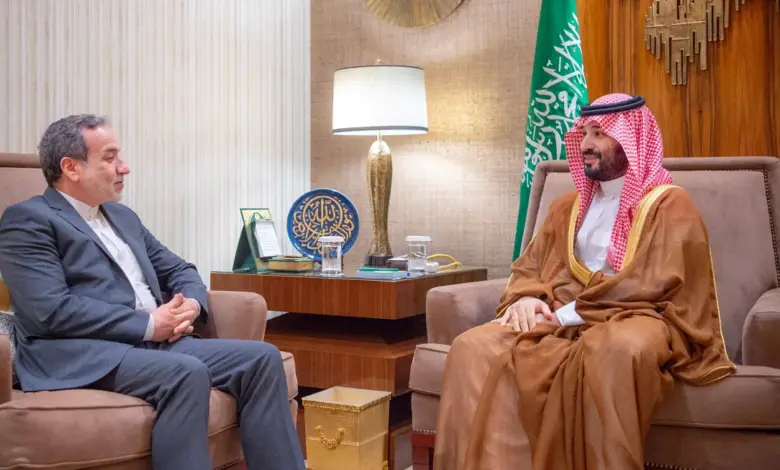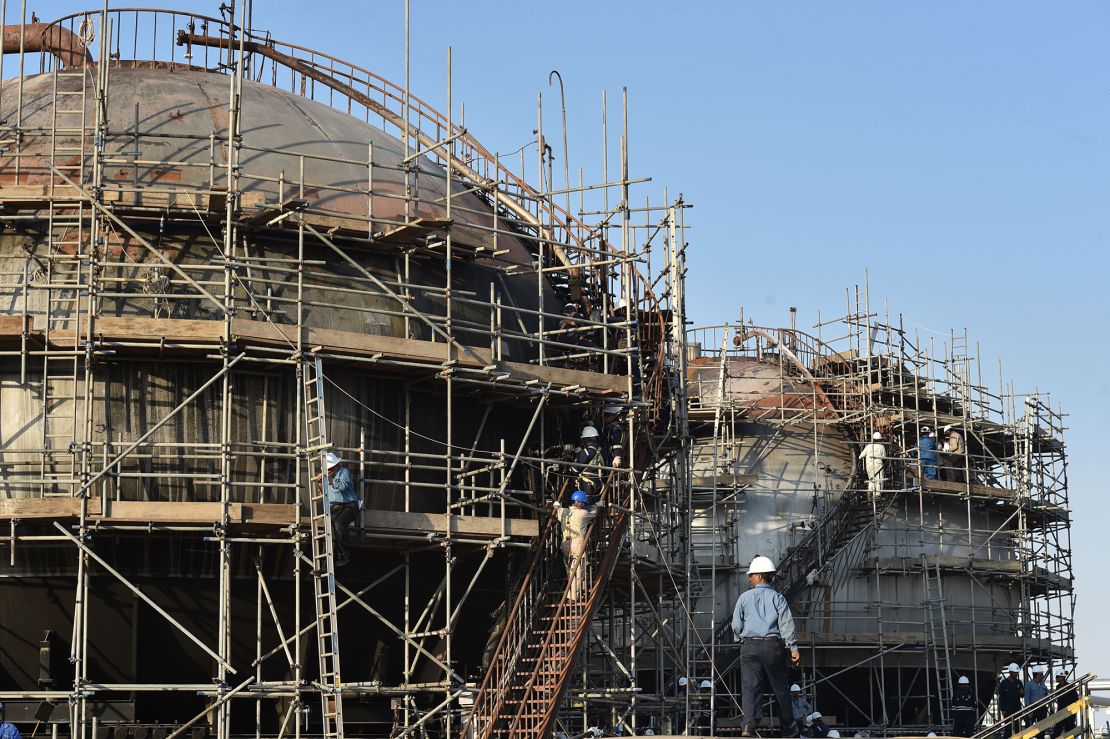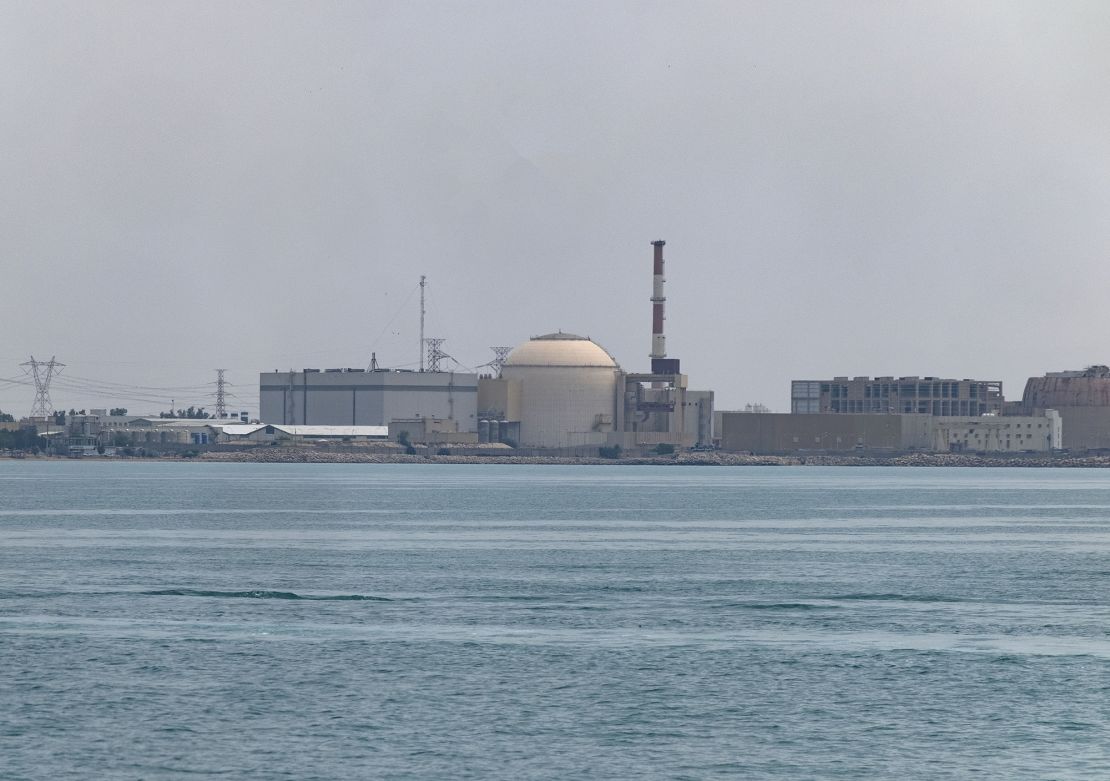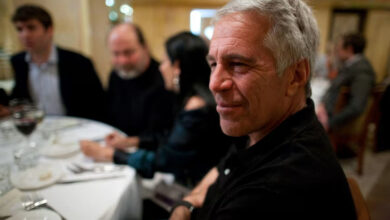
The kingdom is concerned that Iran may be more inclined to pursue a nuclear weapon now that its regional proxies – long viewed as a deterrent against Israeli attacks – have been significantly weakened. Saudi Arabia hopes to leverage its close ties with President Donald Trump to provide Iran with a diplomatic bridge to the White House.
It is unclear whether Saudi Arabia has made a formal offer, but the move underscores Riyadh’s desire to build on its improved relations with its former foe and secure a seat at the negotiating table for a potential new deal.
While Trump has said he wants to enter talks for a new deal, the message from Iran has been mixed, with Supreme Leader Ayatollah Ali Khamenei saying last week that talks with the United States were “not smart.”
The US State Department and the Saudi foreign ministry didn’t respond to CNN’s requests for comment. Iran’s mission to the United Nations in New York said it had no comment.
Saudi Arabia publicly welcomed the 2015 nuclear agreement between Iran and world powers but privately seethed over the Obama administration’s failure to address its concerns about Tehran’s regional activities – particularly its missile program and proxy groups from Yemen to Iraq and Lebanon, which Riyadh viewed as a threat to regional stability. It later welcomed Trump’s 2018 withdrawal from the deal.
A year after Trump’s withdrawal, Saudi Arabia’s oil facilities suffered a major drone and missile attack that temporarily cut the crude production of the world’s largest oil exporter in half. Yemen’s Iran-backed Huthi group claimed responsibility, but the US blamed it on Iran – ultimately stopping short of military action in defense of its Saudi ally.
But tensions between Saudi Arabia and Iran have eased significantly since then. In March 2023, the two countries made a surprise announcement to normalize relations in a China-brokered agreement. Saudi officials view the deal as a major success, believing Riyadh has reaped its benefits – Huthi attacks on Saudi territory have ceased, and the kingdom was spared in last year’s tit-for-tat strikes between Israel and Iran, despite fears that Tehran might hit Gulf Arab oil installations if its own facilities were hit by Israel.
Over the past 15 months, Israel has significantly weakened Iran-allied groups in Lebanon and Gaza and has struck targets in Syria, Iraq and as far as Yemen. Combined with the fall of the Assad regime in Syria, these developments have dealt a serious blow to Iran’s ability to project power beyond its borders.

Saudi officials see the current regional landscape as a historic opportunity to de-escalate tensions with Iran and improve ties, insisting that they want no part in any American or Israeli confrontation with the country.
They are also concerned that a cornered Tehran may be more willing to develop a nuclear bomb and they view a new nuclear agreement as a way to prevent that. They do not believe a severely weakened Iran serves Saudi Arabia’s interests, as Riyadh has recalibrated its foreign policy to prioritize its economic interests and views further regional instability as an obstacle to progress.
A ‘big Middle East celebration’
Since taking office for the second time, Trump has said that he wants a new deal with Iran. He has reluctantly doubled down on sanctions on the country over its nuclear program and has said that he would “love to” reach a deal and improve relations.
“I want Iran to be a great and successful Country, but one that cannot have a Nuclear Weapon. Reports that the United States, working in conjunction with Israel, is going to blow Iran into smithereens,’ ARE GREATLY EXAGGERATED,” Trump posted on Truth Social last week.
He continued, “I would much prefer a Verified Nuclear Peace Agreement, which will let Iran peacefully grow and prosper. We should start working on it immediately, and have a big Middle East Celebration when it is signed and completed. God Bless the Middle East!”
With Iran’s economy crippled by US sanctions, President Masoud Pezeshkian – who ran for office last year on a platform of global reconciliation – is under intense pressure from his reformist base and regular Iranians to tackle a plummeting currency, massive youth unemployment and chronic power cuts.
Signals from Tehran, however, have been mixed. Pezeshkian and other Iranian officials have repeatedly stated their willingness to engage with the Trump administration on a new deal and have said that dialog could follow on “other issues.”
But on Monday, Pezeshkian questioned Trump’s sincerity in seeking a new nuclear deal. And last week, Supreme Leader Ayatollah Ali Khamenei, who holds ultimate authority over state affairs, declared that talks with the US were “not smart, wise, or honorable,” citing the US’ withdrawal from the 2015 deal. He didn’t however outright ban communication with Washington.
Riyadh’s growing influence
Firas Maksad, a senior fellow at the Middle East Institute in Washington, said that while Saudi foreign policy is anchored in a strategic partnership with the US, Riyadh’s foreign policy “has sought to diversify its options, both regionally and internationally, allowing for flexibility and pragmatism when circumstances dictate.”
“Signaling willingness to mediate between President Trump and Iran allows the kingdom to tacitly distance itself from Trump’s maximum pressure campaign against Tehran,” he told CNN.
He said, however, that given the lingering lack of trust between Saudi Arabia and Iran, “this is unlikely to develop beyond diplomatic signaling.”

Riyadh’s ties with Trump – and the extent of Crown Prince Mohammed Bin Salman’s (MBS) influence on him – are likely to be tested by the president’s controversial plan for the US to “take over” Gaza and expel its Palestinian population. The proposal could derail Saudi-Israeli normalization, which both Trump and Israeli Prime Minister Benjamin Netanyahu have aggressively pursued.
Last week, Trump struck an optimistic note about Saudi-Israel normalization, claiming Riyadh wasn’t demanding an independent Palestinian state in return.
Saudi Arabia swiftly responded, firmly rejecting any plan involving Palestinian displacement and reaffirming that no normalization will take place without Palestinian statehood.
Still, Saudi Arabia’s relationship with Trump remains strong. While other US allies tread carefully to avoid provoking him, the kingdom’s international profile and influence is likely to continue growing under Trump.
Trump has even suggested Saudi Arabia could be the destination for his first foreign trip as president – again – where MBS may find himself in the unlikely role of mediator between the US and Russia in efforts to end the largest European war since World War II.




